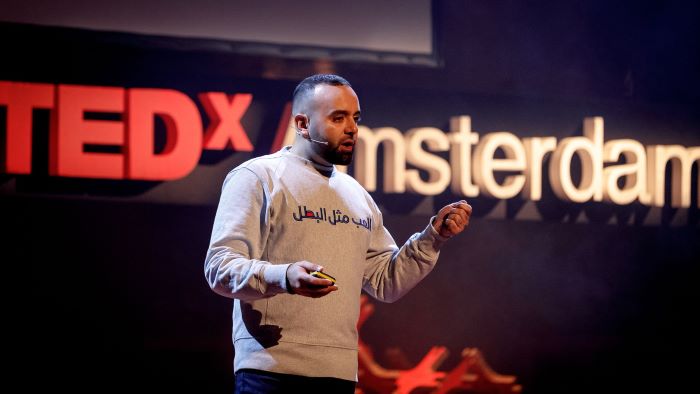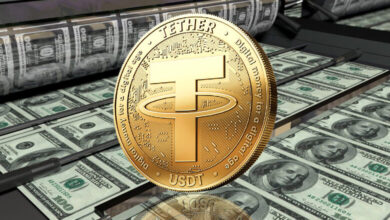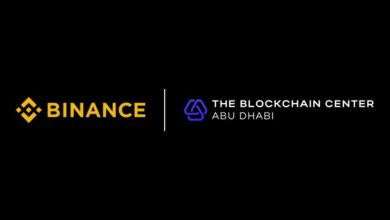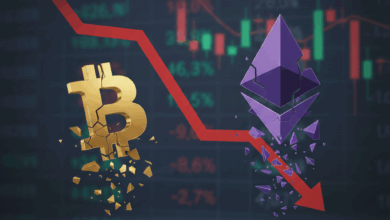Lebanese cryptocurrency users growing amidst demise of Lebanese Lira

Fluus.me is one of the companies providing access to crypto for Lebanese inside the country. More than 5000 crypto users in Lebanon today.
Last week UNLOCK published a piece on the death of the Lebanese banking sector and the rise of digital currencies and crypto as the solution. One of the solution providers is already operating in Lebanon. Its name is Fluus which means money in Arabic. Fluus is a peer to peer money exchange app with a mission to drive financial inclusion with technologies that are borderless, open, and neutral.
UNLOCK spoke to Tey El Rjula, Founder of Fluus to discuss in detail what Fluus is doing in Lebanon and how this is helping the Lebanese. As Tey explains, “Fluus provides Fiat on ramps to cryptocurrencies such as Bitcoin, Ethereum, Litecoin and stablecoins such as USDT and others. We help to onboard and educate the Lebanese on how to acquire, use and store crypto and digital currencies.”
If you are Lebanese and have ever tried to buy crypto on a cryptocurrency exchange you would not be allowed to especially if you try exchanges that are based in Europe or USA such as Coin Base, Bitstamp and others, while residents of other countries can do so. Fluus works with Chinese crypto exchange Binance. Fluus uses Binance to buy crypto and then transfer this crypto/stablecoin to Lebanese who have downloaded digital wallets.
How to buy crypto with Fluus?
So how does a Lebanese in Lebanon buy crypto. As Tey states, “Let’s suppose someone in Lebanon wants to buy crypto, they call our team as first step. We usually spend around 30 hours with each client explaining and teaching them the ins and outs of crypto, digital wallets, exchanges and so forth. Once they have downloaded a digital wallet on their phones, we then send one of our Fluus representatives, based on a prior appointment, to receive the Lebanese lira to pay for the crypto. The client and Fluus have already previously agreed on a password so that when Fluus representative arrives, he/she shares the password. Fluus is a small group of very well vetted team. We get paid in Lebanese lira and then transfer the crypto or stablecoin from our wallet on Binance to the client’s digital wallet.” If a client is not close, they can send the money via OMT, and receive their crypto into their wallet. In other countries Fluus would have accepted payment in credit cards, checks or transfers, but because in Lebanon the banks are not allowing people to take out their money, Fluus has to deal in cash.
Crypto buying is in Lebanese Lira and not Dollars
One of the most unique aspects of Fluus is that payment is made only in Lebanese Lira. As Tey explains,” Given the current banking situation in Lebanon, and the fact also that many Lebanese are hoarding Lebanese lira at home, it is imperative that we deal in Lebanese Lira and not dollars. Fluus gets paid in Lebanese Lira, at the exchange rate of 1500 plus 1000% rate or parallel market rate of Lebanese Lira plus commission.”
Tey insists that clients are not encouraged to change their entire Lebanese lira to crypto but 10-15% of it.
Digital wallet, private key or seed phrase is everything
One of the main changes that has come about from utilizing crypto is that the person holding crypto in his or her wallet are totally responsible for what happens to their crypto. Fluus does not currently offer a custodial wallet, so each client has to choose their own wallet and carry out self-custody. This means that they have to choose the right digital wallet and safeguard their private key, because if they lose their private key they lose their crypto or stablecoins.”
Tey explains, “Although Fluus is working on developing our own digital wallet until then we ask clients to choose a digital wallet to download. We recommend Samourai Wallet for Android phones, and BRD (Bread wallet), or Blockchain wallet for iphones. These are all self-custody wallets and that is why we do 30 hours of education and ask people to save their private keys or seed phrase in several places on paper and elsewhere.
Lebanese receiving crypto from outside
The Lebanese are also using Fluus to receive crypto from outside. Lebanese expats are sending crypto and stablecoins to family members because of their distrust in Lebanese banks and money transfer agencies and their fear that at any time the government might decide to stop giving Lebanese fresh dollars. As Tey explains, “Lebanese expats and international employers who are employing Lebanese inside Lebanon are sending crypto. Crypto is valued even higher than fresh dollars because it can be sent outside the country easily while fresh dollars cannot be taken out of Lebanon. Crypto is also at hand anytime unlike cash. Lebanese who receive crypto on their digital wallets here and need Fiat also come to Fluus.
The growth of Crypto in Lebanon
Today Tey states there are around 5000 Lebanese in Lebanon who have expsure to crypto, hold wallets, have dabbled in crypto, while 10 percent of those are actively dealing in crypto and stablecoins, as Tey explains, “ They come from all walks of life, teachers, students, graphic designers, software developers who get paid in crypto as some of them work even for international crypto exchanges. Yet the number of Lebanese who have downloaded a digital wallet is much higher. According to digital wallet entity, Blue Wallet, downloads of digital wallets in Lebanon grew by 1000 percent in 2020. Tey adds, “The numbers are growing, and you can see that with as well with BuyBitcoinLebanon where we see reviews everyday on their site by people who have used their service.”
Fluus is not the only platform trading crypto in Lebanon. According to Tey there are 10-12 other crypto traders in Lebanon offering their services, but they use dollars. As Tey explains, “I don’t touch USD because I am based in Europe and there needs to be strong KYC and AML if I am to use dollars given the sanctions on Lebanon.”
Some business and individuals are using their crypto to pay for Facebook ads, Netflix subscriptions, online gambling etc.. given that USD credit cards are no longer available in the country.
The availability of cryptocurrencies and stablecoins in digital wallet has given hope to the Lebanese. Tey states, “Imagine if this had happened in 2006 what would the Lebanese have done? At least they have a solution, and the growth of Fluus is proof of this.”
The Future of Crypto and Blockchain
While today the volumes of crypto usage in Lebanon is not threatening the banking sector or government, the government can still at any moment crack down on Fluus and others given that crypto is not regulated in Lebanon. Tey states, “Yes the government can make it harder on us and others to deal in crypto, but they cannot stop it. When we started to talk about crypto in Lebanon in 2014 there was little interest, today it is growing, and it is the youth of Lebanon, the next generation who will be the hope and create the network effect.”
Today there is so much that the Lebanese can do with crypto, whether for payments, or even staking their Bitcoin and earning interest on it.
Tey believes that Blockchain and crypto are the basic elements to fighting fraud and corruption and as such very important for Lebanon. He states, “Sometime back Fluus had begged the Lebanese Central Bank to create a FinTech crypto sandbox to help develop crypto exchanges, payment providers and others but to no avail.”
One can only hope that the Lebanese learn the lesson, and use the digital solutions and opportunities available today to create a better future.





